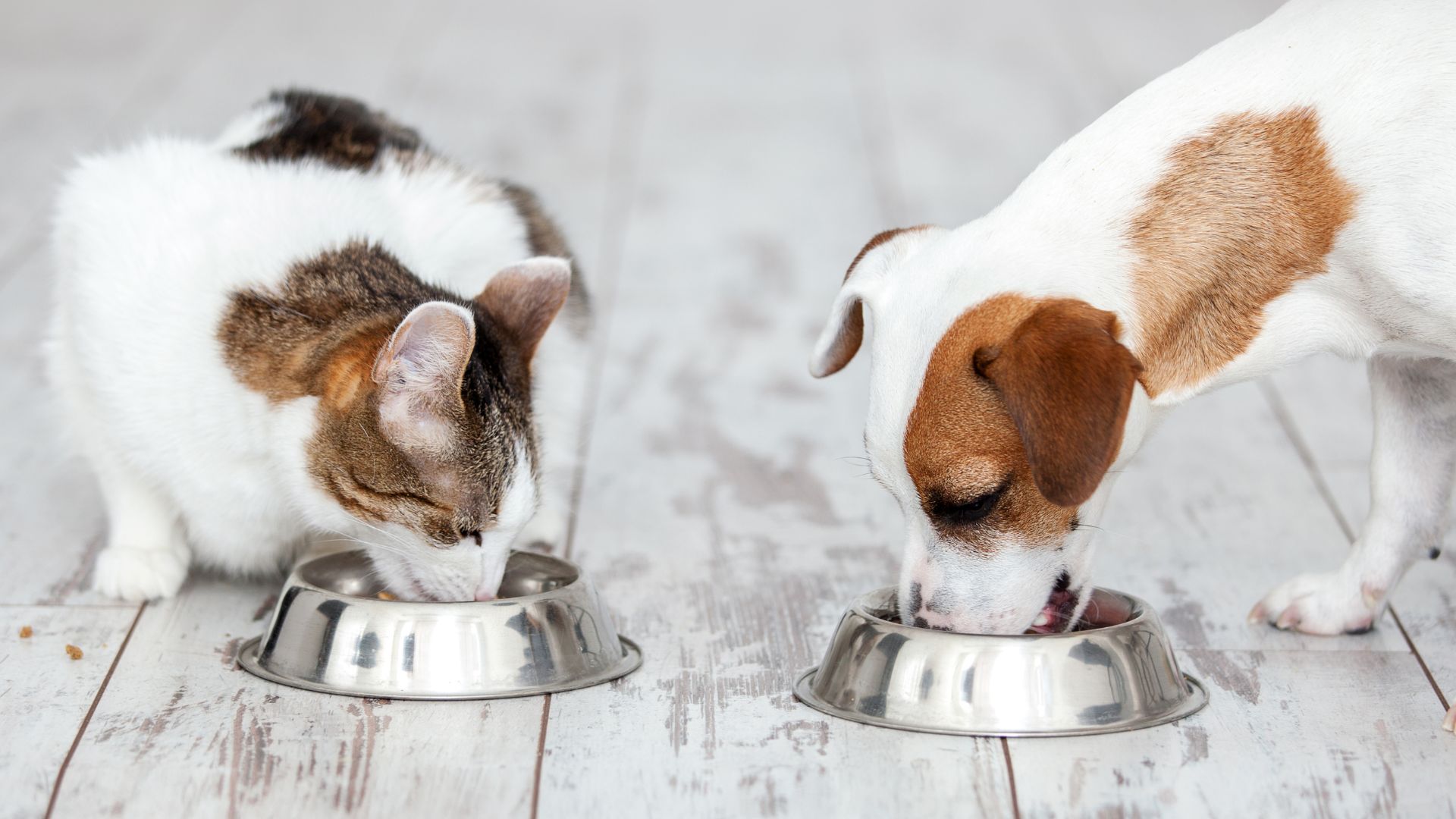Choosing the right pet food is crucial for the health and well-being of your furry friend. There are many factors to consider, including the pet’s age, breed, health status, and activity level. Below is a comprehensive guide to help you make an informed decision. Fletcher Animal Hospital prides ourselves on serving small and exotic animals near you Fletcher, North Carolina!
Understand Your Pet’s Nutritional Needs:
- Species Appropriate Diet: Different species have different nutritional requirements. For instance, cats are obligate carnivores and require a diet high in animal proteins.
- Age: Puppies/kittens, adults, and senior pets have different nutritional needs.
- Breed Size: Large breeds have different needs compared to small breeds.
- Health Status: Pets with health issues like obesity, diabetes, or food allergies may require special diets.
Read the Ingredients List:
- High-Quality Protein: Look for a named animal protein source (e.g., chicken, beef) as the first ingredient.
- Avoid Fillers: Fillers like corn, wheat, and soy provide little nutritional value.
- Whole Foods: Opt for foods that include whole foods like fruits and vegetables.
- Avoid Artificial Additives: Avoid foods with artificial colors, flavors, or preservatives.
Check the Nutritional Adequacy Statement:
Ensure the pet food is labeled as “complete and balanced” by the Association of American Feed Control Officials (AAFCO).
Consider the Pet’s Specific Needs:
- Allergies: Some pets may be allergic to certain ingredients.
- Weight Management: Overweight pets may require a lower-calorie diet.
- Life Stage: Some brands offer formulas specifically for puppies/kittens, adults, or senior pets.
Research the Brand:
- Reputation: Look for brands with good reputations and quality control measures.
- Recalls: Check if the brand has had any recent recalls.
- Transparency: Brands that are transparent about their ingredients and sourcing are preferable.
Conduct a Taste Test:
- Pets have preferences too. You might need to try a few different brands or flavors before finding one that your pet enjoys.
Monitor Your Pet’s Health:
- After switching to a new food, monitor your pet for any changes in energy, coat condition, stool quality, and overall health.
- If you notice any negative changes, consult your veterinarian.
Consult Your Veterinarian:
- If you’re unsure about which food to choose, seek advice from your veterinarian, especially if your pet has specific health needs.
Gradually Transition to New Food:
- If you decide to switch pet foods, do so gradually over a period of 7-10 days to prevent gastrointestinal upset.
Don’t Forget About Treats:
- Treats should not make up more than 10% of your pet’s daily caloric intake.
- Choose healthy treats and avoid those with artificial additives.
Choosing the right pet food is a crucial aspect of pet ownership. By taking the time to understand your pet’s nutritional needs, reading ingredient labels, researching brands, and consulting with your veterinarian, you can ensure that your furry friend receives the balanced nutrition they need to live a long and healthy life. Remember to monitor your pet’s health make adjustments as necessary, and always be open to seeking professional advice when needed. If you are in the North Carolina area, come see you today. Open M-F, 8 AM – 5 PM!

